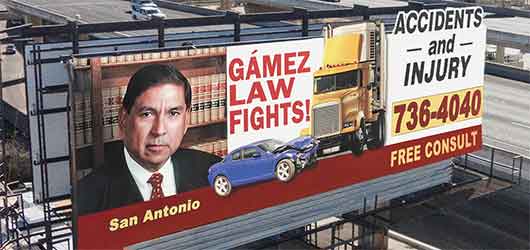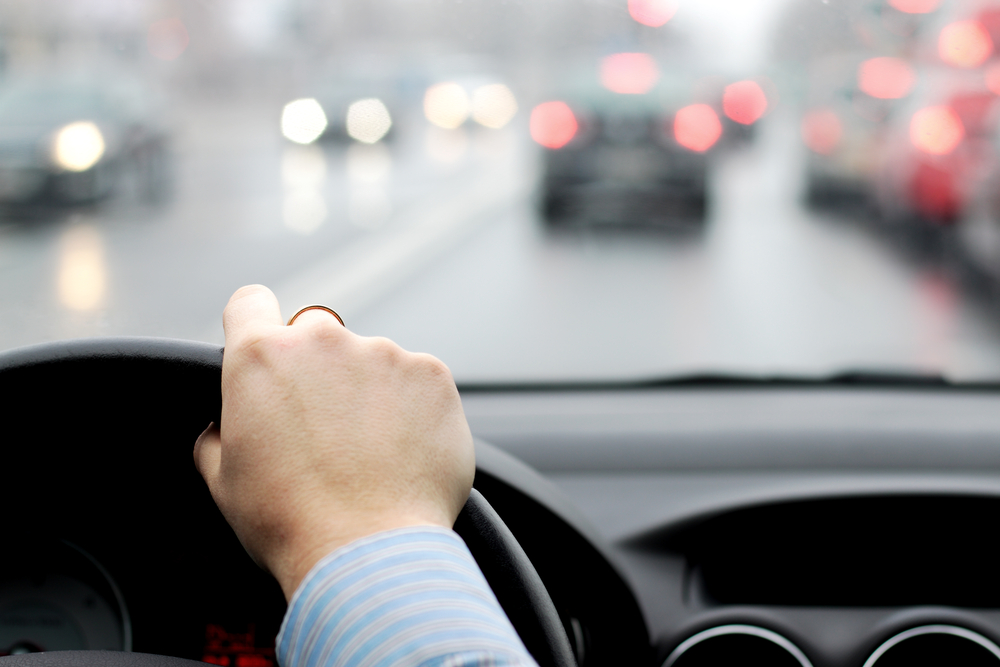Drunk driving accidents are serious offenses in Texas. Not only can these accidents result in grave injuries to both the driver and other individuals involved in the accident, but some of these accidents also result in death and property damage. If you have been charged with a DWI in Texas, you will need a personal injury lawyer in Houston or San Antonio to help you build a defense.
Drunk Driving Accidents in Texas: Six Things to Know
1. First-Time Offense Can Result in Felony DWI Charge
In Texas, a first-time offense for driving under the influence without any aggravating factors usually results in a Class B misdemeanor. A Class B misdemeanor can have penalties such as three to 180 days in jail or a $2,000 fine. However, even a first-time offense of driving while intoxicated with aggravating factors can result in a felony DWI charge.
A felony DWI charge typically results in longer jail time, greater fines, and restricted driving in the future. Based on other factors related to your case, such as the severity of injury to another individual or drunk driving with a minor in the vehicle, the severity of your felony charge can increase.
2. Texas Supports Intoxication Assault Charges
The Texas Penal Code also supports intoxication assault charges. This is a special type of charge that can be added to a DWI when a drunk driving accident results in serious bodily injury to another individual. Serious bodily injury is defined by the Texas Penal Code as an injury that causes a substantial risk of death, an injury that results in permanent disfigurement, or an injury that results in long-term impairment, such as the loss of a limb or an organ.
In general, an intoxication assault charge is a third-degree felony that is punishable by a fine of up to $10,000 and imprisonment of two to 10 years. This offense can become a first or second-degree felony based on the identity of the individual who was injured. For example, intoxication assault charges can result in a second-degree felony when the individual who was injured is an emergency medical worker.
Another Consequence: Intoxication Manslaughter
Some cases can also result in intoxication manslaughter. Intoxication manslaughter is triggered when a drunk driving accident results in the death of an individual. Intoxication manslaughter is considered a second-degree felony with a conviction of $10,000 in fines and two to 10 years of imprisonment. Again, this offense can become a first-degree felony if the victim was emergency medical personnel.
3. Reckless Damage Charges Can Apply to Your Case
Drunk drivers who damage personal property, such as a car or home, can also have reckless damage charges added to a DWI charge. Reckless damage is a charge that occurs when a driver is drunk and knowingly gets behind the wheel. Reckless damage charges are considered a Class C misdemeanor in Texas and carry an additional fine of up to $500.
4. Leaving the Scene of the Accident Is Illegal
Leaving the scene of an accident is illegal in Texas. A hit-and-run can have severe consequences, particularly when DWI is involved. For example, a hit-and-run can become a second-degree felony when the accident involves the death of another person. A hit-and-run is a third-degree felony when the accident results in serious bodily injury.
Hit-and-runs can become a Class B misdemeanor when the property damage is $200 or more. The consequence of a Class B misdemeanor for a hit-and-run can include 180 jail days in jail and a fine of $2,000.
5. Chemical Tests Are Required
Also known as a breathalyzer, this chemical test will assess your level of intoxication. Many times, your level of intoxication will influence the severity of your charges.
A police officer has the right to ask for you to submit to a chemical test when they reasonably believe that you are driving under the influence. This can include situations in which driving under the influence caused an accident.
6. Texas Has a Dram Shop Law
The Texas Penal Code supports a dram shop law. This law says that the person liable for a drunk driving accident is not only the drunk driver. In many cases, DWI victims can also charge bars, liquor stores, and other establishments with liability for a car accident if there is a reasonable belief that the establishment served alcohol to a minor or an individual who was visibly intoxicated.
Can a Personal Injury Lawyer in Houston or San Antonio Help You?
Because Texas DWI charges can result in felonies and misdemeanors, along with serious consequences such as jail time, it may seem impossible to find a defense against a DWI charge. However, working with an experienced personal injury lawyer in Houston or San Antonio can help you find a defense for your drunk driving charge. Some defense strategies can include:
Invalid Breathalyzer Test
Your personal injury lawyer may be able to challenge the validity of a breathalyzer test. For example, if the company that makes a breathalyzer test has a history of faulty test results, this can be used as evidence to prove that the breathalyzer test you submitted when you were charged for drunk driving was incorrect. Ultimately, this may help your lawyer dismiss your DWI charges.
Involuntary Intoxication
Another legal strategy to consider is involuntary intoxication. If you can prove that you were not aware of your level of intoxication, your personal injury lawyer may be able to reduce your charges or have your case dismissed. For example, if your drink was spiked and you got behind the wheel without knowing you were intoxicated, the law will support you because you were not willfully negligent.
Inaccurate Field Sobriety Test
Sometimes, in addition to a breathalyzer test, a police officer may ask you to complete a field sobriety test. Although field sobriety tests can vary from county to county, there can always be an argument made that a field sobriety test was inaccurate. Because police cruisers and police officers have cameras to record arrests, this photographic evidence can be used to prove that the field sobriety test was administered incorrectly.
Lack of Probable Cause
Finally, your personal injury lawyer may be able to argue that there was a lack of probable cause that prompted the police officer to pull you over. In particular, a police officer can only pull you over when you are violating Texas road laws by speeding, driving without headlights or tail lights, or weaving in and out of lanes. If you were pulled over for any other reason, this could mean that the officer had a lack of probable cause.
If you have been in a drunk driving accident and have been charged with a DWI in Houston or San Antonio, you will need the help of a personal injury lawyer who specializes in drunk driving cases to help you reduce or dismiss your charges in court. Learn more about how a personal injury lawyer in Houston or San Antonio can help you after a drunk driving accident when you contact the Joe A. Gamez Law Firm, PLC today.



